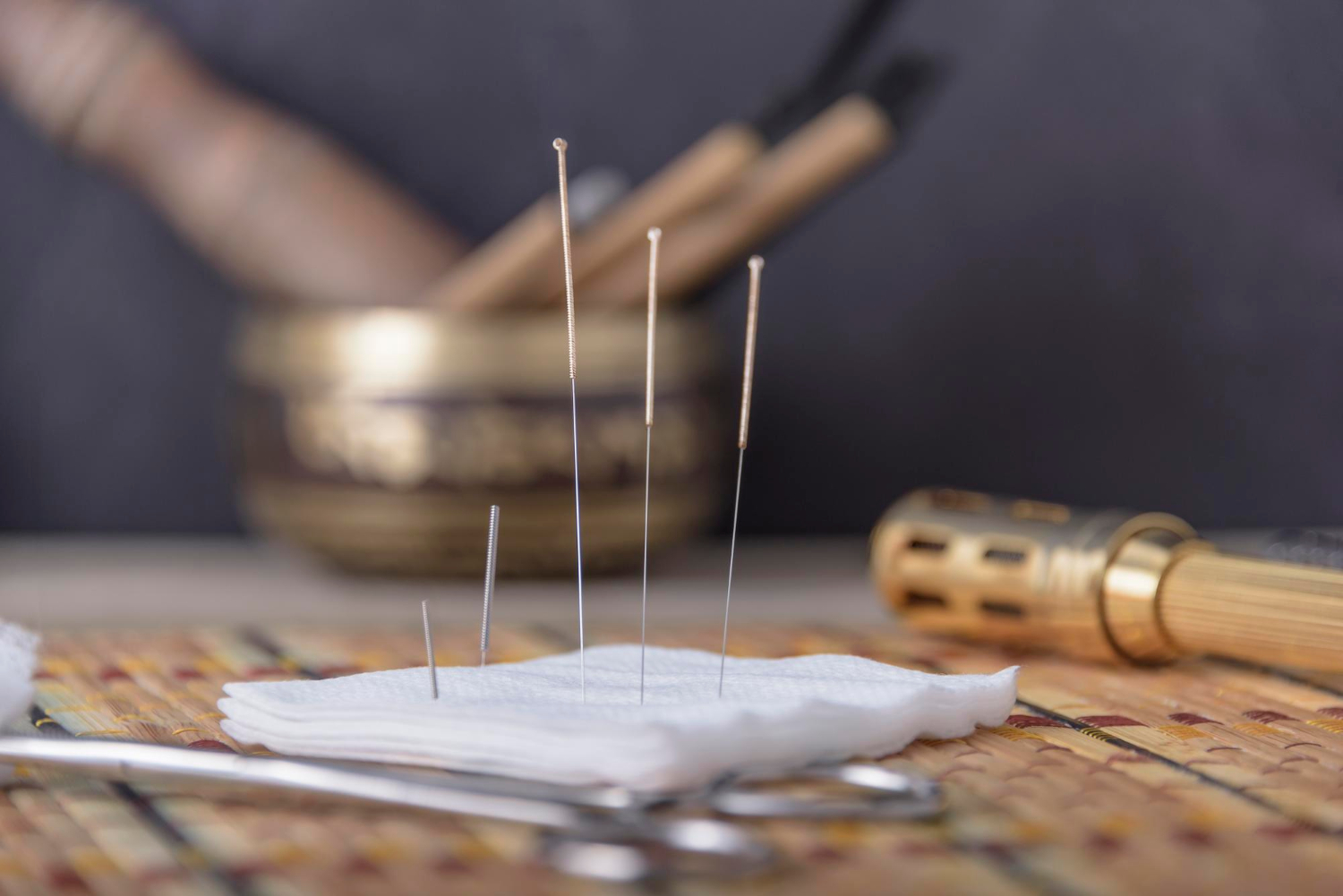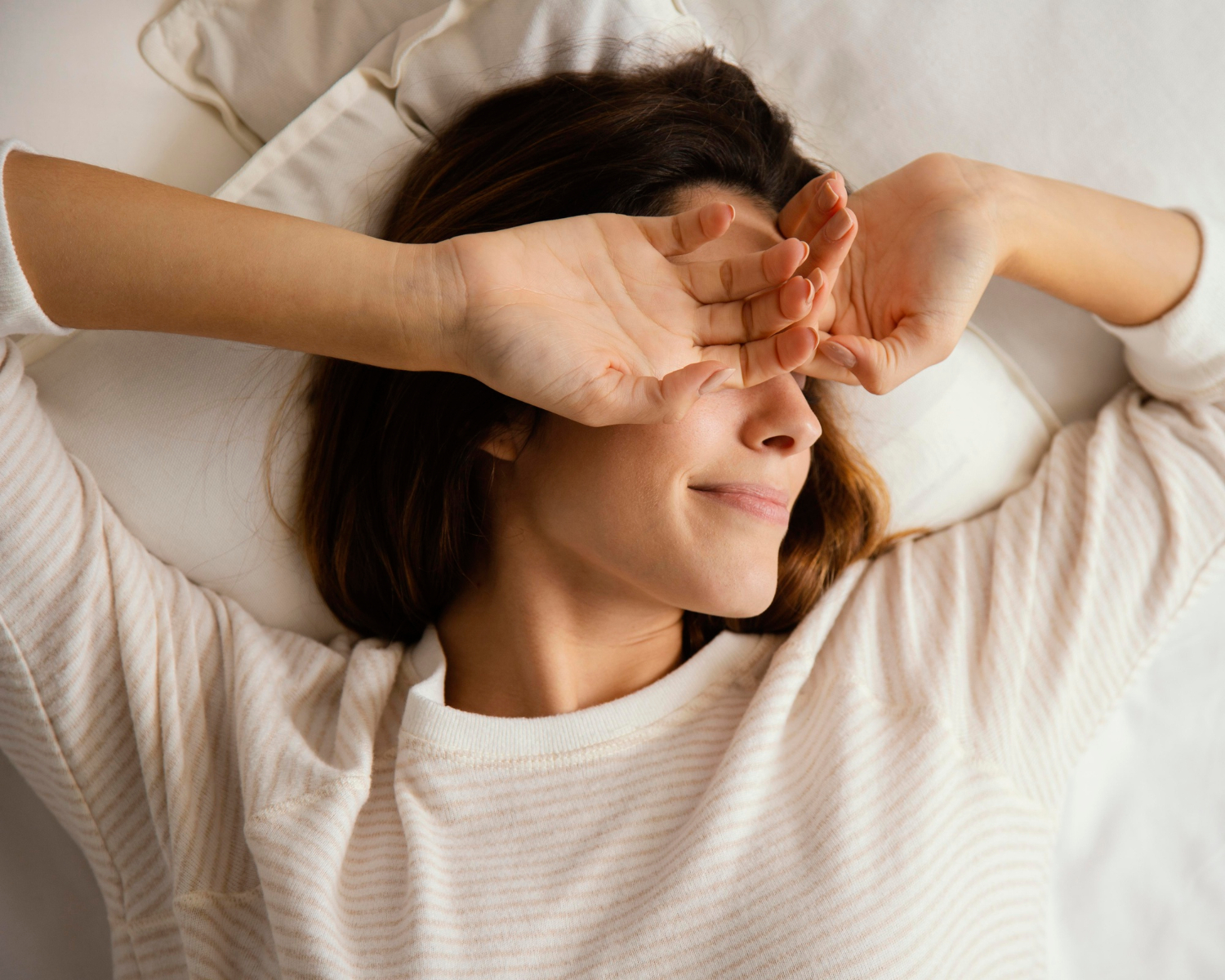Can Acupuncture & TCM Really Help Our Eyes?
Can Acupuncture & TCM Really Help Our Eyes?
What are the principles of TCM?
When we mention Traditional Chinese Medicine, we may think of Qi. But do you know that there is more than meets the eye when it comes to TCM? In addition to the concept of Qi, you can also find concepts on the Five Elements, as well as, Yin and Yang. Before we dive into the topic of TCM and acupuncture treatments for your eyes, let’s have a look at the principles of it.
Qi
Qi is the vital force that circulates through our body and is directly linked to our physical and psychological well-being. But how can you know whether a person has enough Qi? Someone with enough qi in his or her body will most likely be energetic and healthy. They may be able to fight off illnesses with ease and possess an unclouded mind. However, those who are deficient in Qi might experience symptoms of lethargy, have a poor immune system, and have difficulty digesting food.
In TCM, illnesses are often attributed to the flow of Qi being blocked, disrupted, or stagnated. Therefore, treatments such as acupuncture, herbal remedies, and exercises such as qi gong, will focus on bringing it back to balance. We can also regulate Qi in our daily lives by following healthy habits such as getting enough sleep, exercising regularly, managing stress, and having a balanced diet.
Five Elements
The Five Elements may be a concept that is more unheard of when compared to Qi, along with Yin and Yang. Known as Wu Xing (五行), the Five Elements consist of Wood, Fire, Earth, Air, and Water. In TCM, this is not just used to diagnose someone with a certain illness but also to get to the root of the problem.
Each element is associated with certain organs, tastes, colours, and emotions. They are also believed to be interconnected, with any excess or deficiencies being attributed to various health issues.
Yin and Yang
In addition to keeping the five elements in harmony with one another, and ensuring the smooth flow of Qi, maintaining balance between Yin and Yang is equally important to our overall health. This concept can be seen in our daily lives and found throughout nature, such as day and night, light and dark, hot and cold.
It is important to keep in mind that neither is above the other and they work together to create equilibrium.

How is acupuncture used for eye health?
In TCM, acupuncture is one of the treatment options available for the eyes. As the body is seen as an interconnected system, any imbalance may show up as eye problems. Therefore, this treatment is performed to promote the circulation of Qi and blood to nourish the eyes.
Below is a list of common acupuncture points that are attributed to eye health:
Jingming
Jingming is located in the inner corner of the eye. It is known as the tear hole acupoint and is linked to tear secretion. This point is commonly known for addressing eye diseases and also serves to improve the circulation of Qi and blood.
Sizhukong
Sizhukong can be found at the end tip of the brow. It is thought to help alleviate headaches, blurry vision, and twitching eyelids. Stimulating this point is also believed to relieve eye strain and promote relaxation in the eye muscles.
Zanzhu
Zanshu is located above the inner end of the eyebrow, directly above the inner corner of the eye. This point is also known as Bladder 2 and is thought to assist in easing dry eyes, twitching eyelids, and blurred vision.
Yuyao
Yuyao is located in the depression at the midpoint of the eyebrow, directly above the pupil. It is associated with the regulation of eye movement and visual function. Stimulating this point is believed to nourish the eyes, which is also used to alleviate cloudiness in the cornea, and eye pain.
Tongzilia
Tongzilia can be found at the outer corner of the eye. Also referred to as the Gallbladder 1 point, its stimulation is believed to ease conditions such as sensitivity to light and eye strain.
What are the common eye conditions that are treated using acupuncture and TCM?
Cataracts
TCM sees cataracts as a result of Yin deficiency in the liver and kidneys. This can lead to the formation of damp heat, which can rise and affect the eyes, contributing to the development of cataracts. These organs are particularly important when it comes to maintaining eye health.
The common approach towards cataracts is to nourish the Yin. which may be done through the use of herbal remedies containing herbs like chrysanthemum, goji berries, and dendrobium. It might also be combined with acupuncture to stimulate specific points to clear heat.
Dry eyes
Dry eyes in TCM are viewed as a result of Yin deficiency, which leads to an imbalance in tear production. This condition can also be caused by other organs having excessive heat, or environmental factors such as hot and dry weather.
Treatment for this condition, in addition to TCM's usage of acupuncture as a treatment for the eyes, may involve nourishing Yin and moistening the eyes. This can include herbal remedies to reduce inflammation and improve tear quality, as well as, recommendations for lifestyle modifications.
Floaters
Treatment in TCM for floaters typically focuses on nourishing Yin, promoting the smooth flow of Qi and blood, and addressing any deficiencies in the kidney, liver, and gallbladder. This may involve acupuncture, herbal remedies, dietary changes, and lifestyle modifications.

What are the benefits of using acupuncture and TCM?
Holistic care
TCM takes a holistic approach when it comes to treatments. It does not just look at the symptoms, but the individual as a whole. Your doctor may even discuss your lifestyle habits, food intake, and the environments you have been exposed to. Treatments are also designed to not just alleviate symptoms, but also strengthen the body to prevent the condition from recurring.
Personalised treatment plan
When we think of TCM, acupuncture is one of the treatments that comes to mind, even for conditions related to the eyes. However, doctors who practice TCM tailor their treatments to each individual. They will also take multiple factors into account, such as medical history, lifestyle habits, and patient feedback on their symptoms.
Stress reduction
TCM treatments for eye disorders, including cataracts and dry eyes, may include an element of stress reduction. This can take the form of herbal remedies which might contain adaptogenic herbs such as ginseng, and aloe vera. Acupuncture, in addition to stimulating the flow of Qi, may also reduce stress levels through targeting specific points.
Integrative approach to eye care
In addition to TCM’s usage of acupuncture, herbal remedies, and dietary changes for eyes, it can also be integrated with Western approaches. This could take the form of using equipment for eye screening that is usually associated with Western practices in Singapore. To better illustrate what this is like, you can take a look at the testimony that one of our patients has left us.
How can TCM complement Western approaches?
The Western approach tends to focus on treating a patient's illness, using symptoms to pinpoint affected organs and follows a systematic approach. On the other hand, TCM seeks to address underlying imbalances in an individual's body that may be contributing to their condition. While from this description it seems that both approaches are worlds apart, they can complement each other.
For example, using TCM’s acupuncture as a treatment for the eyes can help improve blood flow and promote overall eye health. This can complement Western approaches such as the usage of eye screening equipment that can be found in hospitals and clinics throughout Singapore. Acupuncture may also help alleviate discomfort and aid in healing after eye surgery, potentially reducing the severity of dry eyes and controlling tear production.
Adding on, TCM’s emphasis on holistic health can provide added support for patients undergoing Western treatments. This can come in the form of lifestyle modifications, herbal remedies, dietary recommendations, and exercise therapies like Tai Chi. By integrating TCM and Western approaches, patients can have a treatment plan which addresses the symptoms while also potentially improving their health and well-being.

Are you interested in learning more about TCM for your eyes?
If you are interested in learning more about TCM treatments for eye disorders such as cataracts and dry eyes, contact us and we will be in touch soon.

